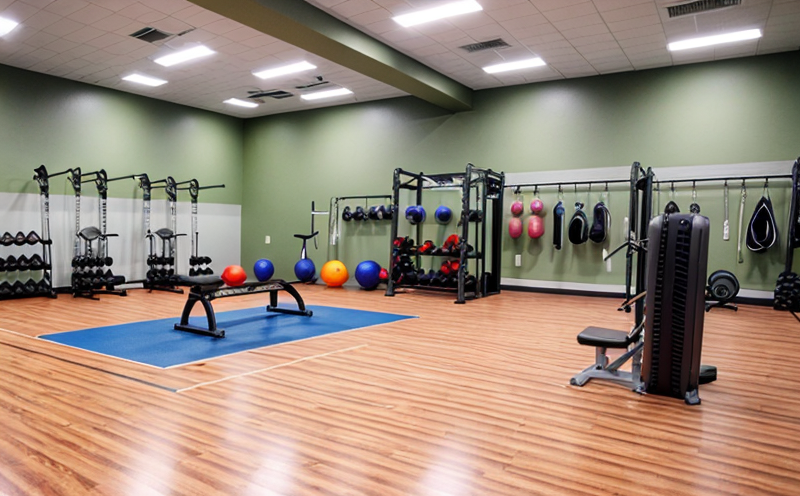Bluetooth Functionality Testing in Fitness Devices
The Bluetooth functionality testing of fitness devices is a critical aspect of ensuring consumer safety and satisfaction. As technology continues to evolve, so too does the complexity of these devices, which often integrate with smartphones or other electronic gadgets to provide real-time data on heart rate, steps taken, distance covered, and more.
Bluetooth Low Energy (BLE), a subset of Bluetooth technology, is widely used in fitness wearables due to its low power consumption and long battery life. However, the integration of BLE into these devices introduces new challenges and potential points of failure that must be rigorously tested. This service ensures that the devices perform reliably under various conditions, which is essential for maintaining user trust.
The testing process involves several stages, including initial setup, device pairing, data transfer verification, and stress testing. During this setup, we ensure that each fitness device can connect to a smartphone or tablet using Bluetooth without any issues. This includes checking the compatibility of different operating systems (iOS, Android) and ensuring that the connection is stable even in crowded wireless environments.
Data transfer verification involves simulating real-world scenarios where the device sends data to the paired smartphone or computer. We test for latency, packet loss, and data integrity. For instance, during a 10-minute walk or run simulation, we measure how much time elapses between when the activity starts and when the first data point is recorded by the paired device.
Stress testing ensures that the devices can handle high levels of usage over extended periods without failing. This includes testing under extreme conditions such as high temperatures, low battery levels, and simultaneous connections from multiple users. The goal is to identify any weak points in the Bluetooth functionality so they can be addressed before the product reaches the market.
Another crucial aspect of this service is ensuring that the devices comply with relevant international standards such as ISO/IEC 17025 for laboratory accreditation and IEEE 802.15.1 for Bluetooth specifications. Compliance with these standards demonstrates a commitment to quality and reliability, which is vital for maintaining trust among consumers.
Our team of experts uses state-of-the-art equipment and software tools to conduct these tests. These tools include BLE analyzers that can monitor the performance of the Bluetooth connection in real-time, ensuring that any issues are detected early on. Additionally, we use custom-built test rigs that simulate various user scenarios, allowing us to assess how well the devices perform under different conditions.
The importance of this testing cannot be overstated, especially given the increasing popularity of fitness wearables. According to a report by Statista, global sales of smartwatches alone reached over 105 million units in 2021. With such high stakes involved, it is essential that each device works flawlessly and consistently provides accurate data.
Industry Applications
Fitness tracking devices: These include smartwatches, fitness trackers, and other wearable technology designed to monitor physical activity. Testing ensures that these devices accurately track steps, calories burned, heart rate, and more.
Airports and public transportation: In crowded environments like airports or subways, testing helps ensure reliable connectivity even with numerous wireless devices in close proximity.
Telemedicine: Bluetooth functionality is crucial for remote patient monitoring. Testing ensures that the devices can transmit vital signs accurately to healthcare providers.
In each of these applications, the reliability and accuracy of Bluetooth connections are paramount. Any disruption or error in data transmission could lead to serious consequences, making thorough testing essential.
Why Choose This Test
Compliance with international standards: Ensures that your product meets the highest quality and safety requirements.
Data accuracy: Tests ensure that all data points are transmitted accurately, providing users with reliable information.
Prolonged battery life: By optimizing Bluetooth connections, we help reduce power consumption, leading to longer-lasting devices.
User satisfaction and trust: Reliable Bluetooth functionality enhances user experience, fostering customer loyalty and trust.
These benefits make Bluetooth functionality testing an indispensable part of the product development process. By choosing this test, you ensure that your fitness device not only meets but exceeds industry expectations.
Quality and Reliability Assurance
Data integrity: Ensures that all data transmitted between the fitness device and paired smartphone is accurate and consistent.
Connection stability: Tests ensure that connections remain strong even in challenging wireless environments.
To achieve these goals, we employ a rigorous testing protocol involving multiple iterations of stress tests. These tests simulate real-world conditions to identify any weaknesses or potential points of failure. By doing so, we can provide you with a product that is not only reliable but also performs consistently across various scenarios.





